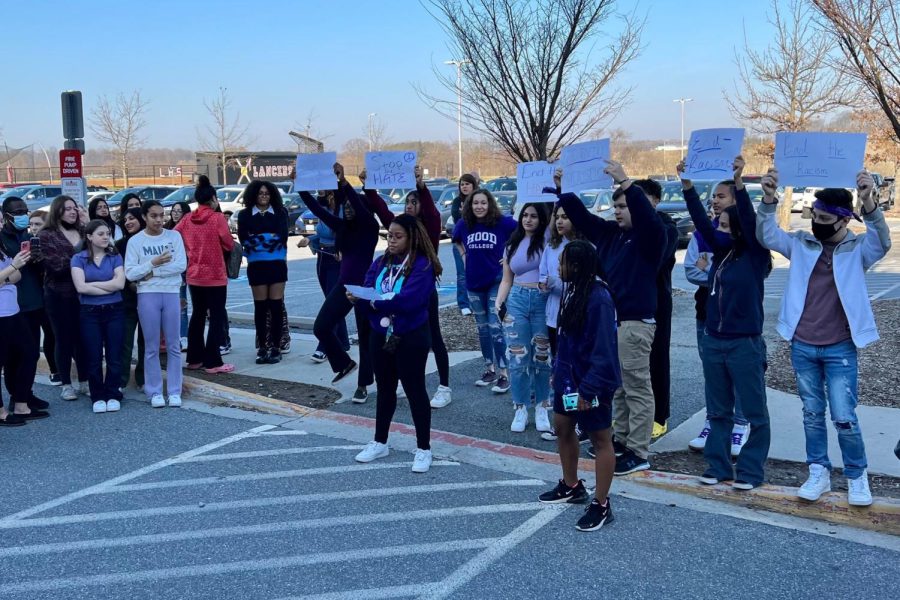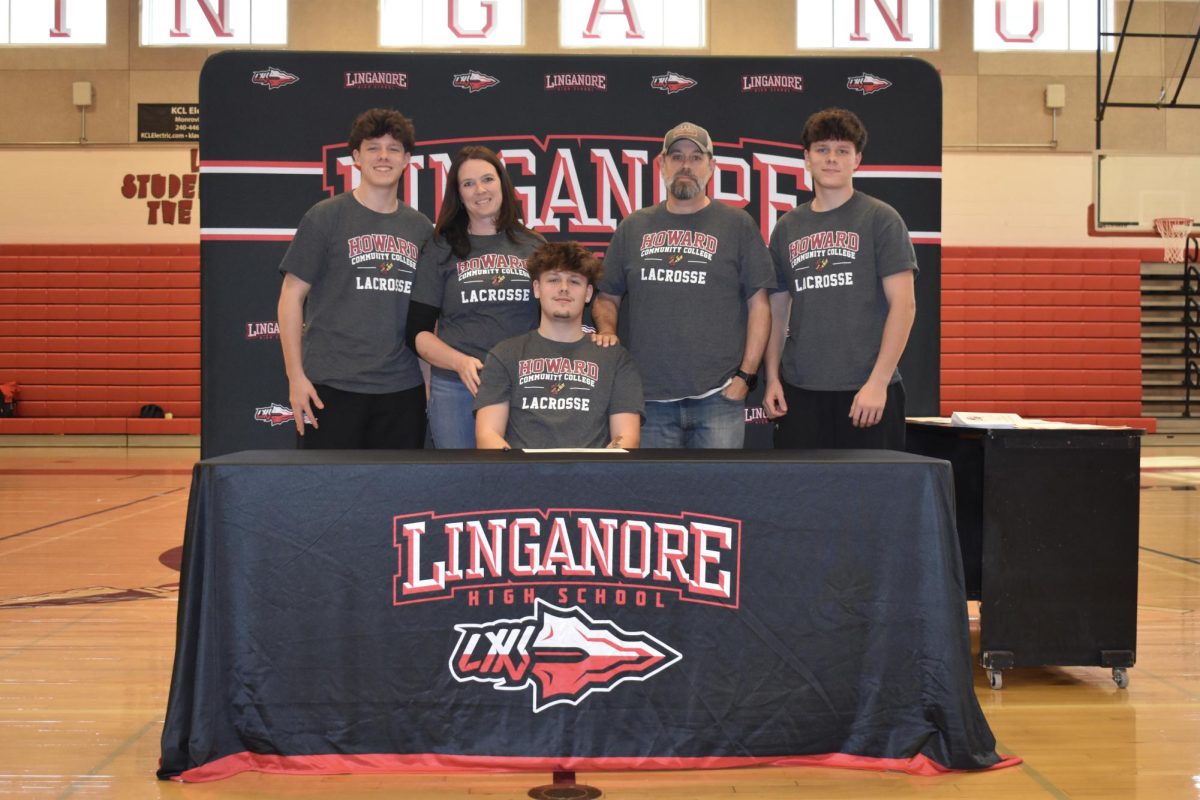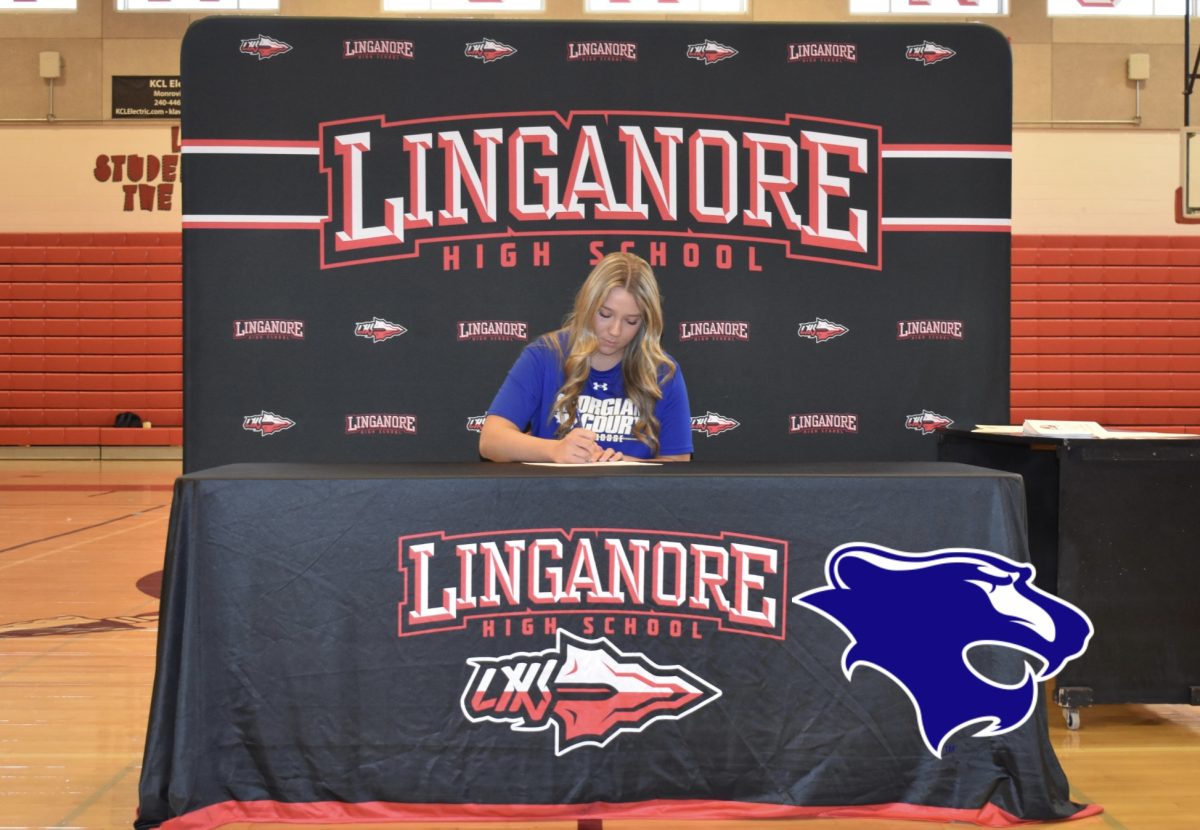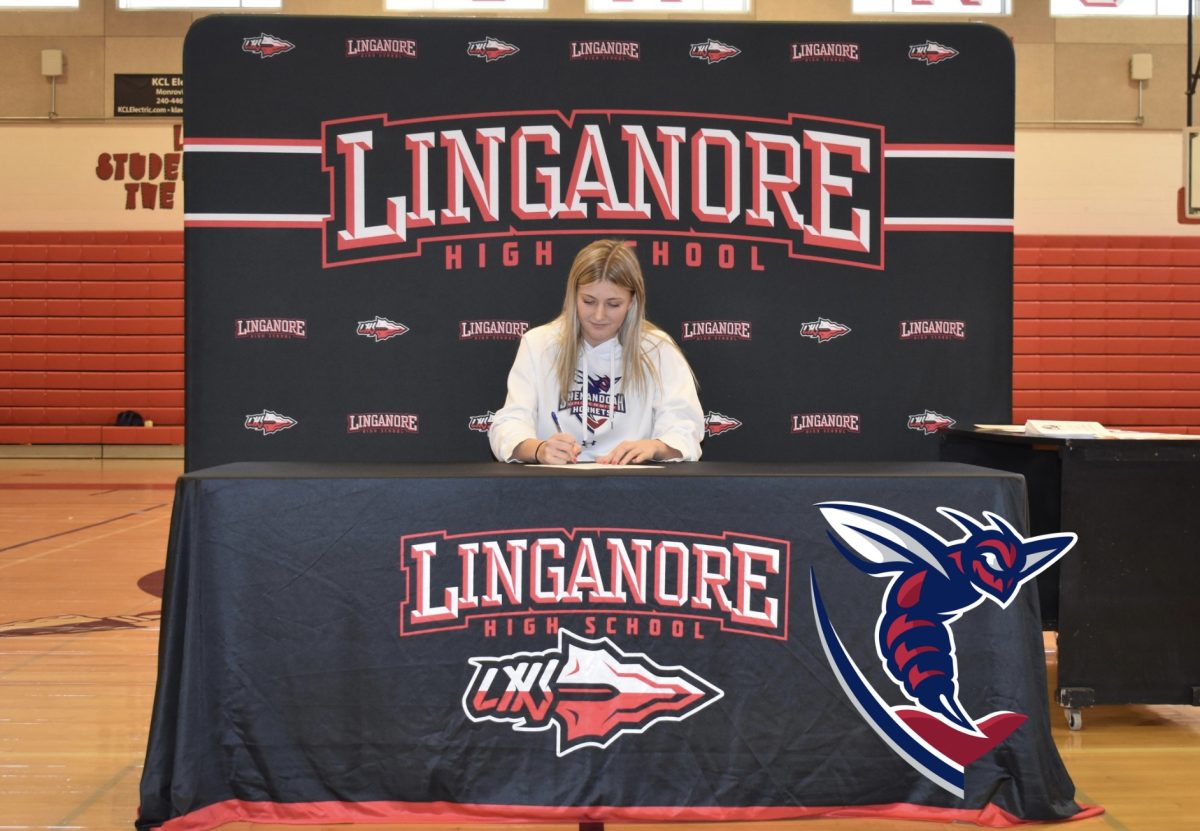African American Students lead walk-out: demonstrating their First Amendment rights
Students from all backgrounds join together to advocate for change in Frederick County.
Legend Campbell and other members of the African American Culture Club stand before the crowd with signs and speeches ready.
March 16, 2022
On March 11, more than 100 students participated in a walk-out to show support to the African American community, not only “for the middle schoolers who had been racially discriminated against and threatened in Middletown,” but also for all in Frederick County. Students left class at 8:00 a.m. and gathered around the front of the building. Many wore purple to show their support.
Junior Promise Greene created the idea of the walk -out and encouraged other members of the AACC to join together. In her speech to the crowd, protester Legend Campbell said, “We walked this morning with the hopes of opening discussions about education and accountability on these issues not only at LHS but hopefully all of FCPS.”
The walk-out was in response to an Instagram post on March 9 that made threats against African American students at Middletown Middle School. Three students were immediately removed from school, and the Frederick County Sheriff’s Office is investigating these hate crimes.
Executive Public Director of FCPS, Dr. Eric Louérs-Phillips said to WBAL-TV, “Every black child was targeted. Every black community member was targeted by the posting of those messages.”
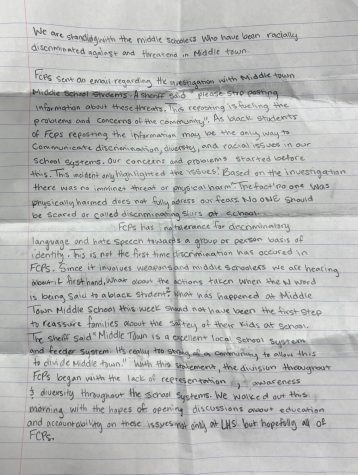
The African American Culture Club felt the need to respond. They made signs and gave speeches about their discriminatory experiences. Many spoke about how in the halls they routinely called rude, insulting names and slurs.
One student, who transferred from Prince George’s County schools where the demographics of the school system is more than 80% Black and Brown students, spoke about the irony of never experiencing racism until she moved to Frederick County.
She said, “I didn’t see color at my old school. I thought of everyone as Black even if they weren’t.”
The students brought up the topic of elementary and middle school children going home and crying to their parents about the hate they experienced each day. They said no student should have to go home and feel ashamed of who they are and what their background is.
“We recognize the harm done by the hateful speech directed toward Black African American students. It is unacceptable and will be fully investigated with appropriate school discipline and criminal implications,” Principal of Middletown Middle School Paul Fer said to The Frederick News Post.
School leadership cautioned students not to inflame the situation by posting on social media.
Some students disagreed with this and continued posting and reposting about the hate crime on their social media, including Instagram, Snapchat, Facebook, and even Twitter. Students spread the word of what was happening at Middletown.
“As Black students of FCPS, reposting the information may be the only way to communicate discrimination, diversity, and racial issues in our school system,” Campbell said.
During Campbell’s speech, she said, “This is not the first time discrimination has occurred in FCPS. Since it [the Instagram threat] involves weapons and middle schoolers, we are hearing about it first-hand. What about the actions taken when the N word is being said to a Black student? What has happened at Middletown Middle School this week should not have been the first step to reassure families about the safety of their kids at school.”
Principal Cindy Hanlon said in a Find Out First sent to LHS families, “This event was hurtful, and it impacted not only the immediate school where the students were, but all of us who live and work in Frederick County.” Hanlon informed teachers about the walk out and encouraged teachers not to interfere with the students’ First Amendment Rights. She and other staff members were present during the demonstration.
During the walk out, a handful of students joined to get out of class. One of the students who spoke called out to the crowd to leave if they were only there to miss instructional time. No one left.
Everyone listened to the many speakers. There were video recordings and plenty of cheering.
Mrs. Beth Ericsson, a Co-Advisor for the African American Culture Club said, “My favorite thing about it [the walk-out] was when one of the students welcomed all who were there; those for the same reason as them and those who weren’t. They then said ‘I hope you learn from this, I hope you grow from this.’ I thought that was really amazing to be out there expressing everyone’s feelings about being the subject of bullying yet welcoming the bullies and saying to learn from us, grow from us. I thought it was very mature and I hope we can all take that lesson and learn from each other.”
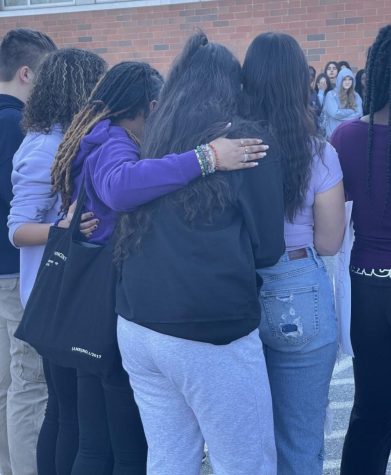
Mrs. Patricia Kolias, an English teacher at LHS and a resident of the Middletown community, talked about how important it was for people to listen to these voices. “I think that sometimes if you are not in the minority population you don’t understand what isolation feels like and you don’t often understand what it is to feel like you don’t belong, and I think that it’s important for everyone to learn how they can make other people feel comfortable and this is something that will not be tolerated in this day in age or tolerated in society.”
Mrs. Randi Kirland, Co-Advisor of the AACC said, “One of the students this morning that spoke said ‘we’re tired’ and when I do my research and I read different stories by African American writers, they are talking about how tired they are of explaining and dealing with all of this and I just empathize with them, with our students, with our minorities that are just tired. And I think it’s time we help them not be tired anymore and we have to listen to each other. This needed to happen.”
“As an English teacher, I don’t think I could have asked for a better display of using voice for a cause. We teach our students day in and day out the literature, the history that repeats through the literature and most importantly, using your voice when it matters. That is what those students did,” Kirkland said.
Ericsson said, “We all need to learn from what those kids shared. Everyday we need to make sure none of them, no student in this school ever has to suffer through any sort of -ist action, any racism, anything against who they are at their basic level.”



